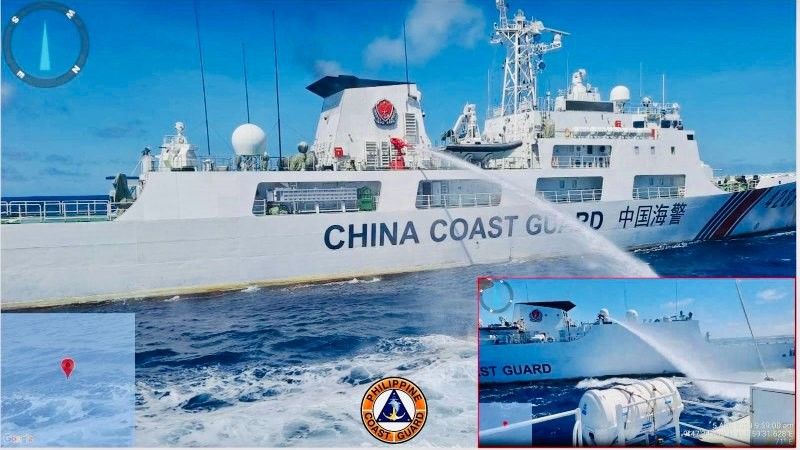A maritime crisis in our midst

How do we resolve a crisis if the other side refuses to talk?
Tensions ran high last weekend as China again used gray zone tactics against the Philippines in our very own maritime backyard. The water cannon incident in the Ayungin Shoal on August 5 is a demonstration of the simmering hostilities in the Philippines’ maritime territory.
The commotion in the recent resupply mission that was supposed to deliver supplies for the crew stationed in the BRP Sierra Madre reveals China’s unsettling actions against the Philippines. The Western Command of the Armed Forces of the Philippines also revealed that there are over 400 foreign vessels swarming within the Philippines’ exclusive economic zone.
These events are not surprising. They are the latest among China's long list of coercive actions against Filipinos. And with the complex and delicate geopolitical and geo-economic landscape of the Philippines and the Indo-Pacific, it is inevitable to hear concerns about possible escalations in the maritime domain.
It is against this backdrop that the Stratbase ADR Institute, with the United States Institute of Peace and the Embassy of Australia in the Philippines, hosted a workshop on crisis communications mechanisms on August 10 and 11.
The discussions are timely, relevant and even interesting, not only due to recent events, but also due to the participation of representatives from the government, such as the Armed Forces of the Philippines and National Security Council, as well as from the diplomatic community.
The exchanges during the workshop made me reflect on the Philippines’ current strategy in the West Philippine Sea.
In January 2023, one of the initiatives that President Ferdinand Marcos Jr. had with Chinese President Xi Jinping was establishing a direct line of communication between both states’ foreign affairs offices to manage maritime security issues.
While this may be viewed as a diplomatic win, this so-called line of communication proved useless during the water cannon incident as nobody was picking up from the other end. Ignoring the call from the Philippines to have a dialogue on this issue is a deliberate act on the part of China. It is a political act that signals the other end's refusal to participate in resolving the issue.
In times of crisis, the automatic response is to look for ways to resolve the issue. To do this, actors and stakeholders must communicate with each other. But how will we solve matters if nobody is answering the other line? One option is to approach friends and partners who can help reduce the tension and consequently resolve the crisis.
In the case of the Philippines, it is only natural to leverage strong diplomatic relations with states who have long supported the Philippines’ victory. Our friends have our back. The United States, Japan, Australia, European Union, France, Germany, Canada, the United Kingdom and even India, among others, are sure to work with the Philippines as credible defenders of a rules-based international order.
Still, the Philippines should not play the small power narrative. While friends and partners are always willing to help, the country must also harness its strengths and hold on to the rule of law. It holds excellent leverage, given its arbitral victory in the West Philippine Sea.
This victory upholds the Philippines territorial rights and under United Nations Convention on the Law of the Sea (UNCLOS) cannot be contested.
In the event of a crisis, the resulting mechanisms must be anchored on the rules-based international order. And with China’s refusal to participate, the Philippines should implement a more effective strategy that will deter the Chinese aggressive behavior in the West Philippine Sea.
The solutions are not limited to military approaches. Complementing a capable defensive posture by promoting civilian led economic, cultural, and environmental activities to establish presence are peaceful options in response to China’s grey zone operations.
As a maritime crisis brews in our midst, the Philippine government must stay true to its vow to uphold national interests. The events in the West Philippine Sea provide a great imperative to focus on harnessing the external defense capabilities of our defense institutions.
The Philippines must be prepared for any scenario. It must continue to build itself as a credible defense partner, ready to stand with allies in asserting its victory and upholding the rules-based international order.
Alynna Carlos is a program manager at the think tank Stratbase ADR Institute.
- Latest




























